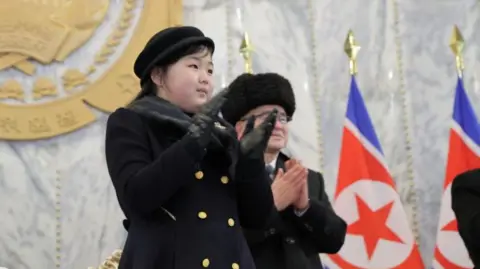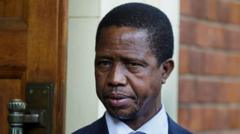Pope Francis, who passed away at the age of 88, will be memorialized in a funeral ceremony this Saturday at 10 a.m. in St. Peter's Basilica. In a departure from tradition, the funeral will adhere to simplified guidelines, reflecting the pontiff's own desire for modesty that he exercised throughout his papacy. Cardinal Giovanni Battista Re, the dean of the College of Cardinals, is set to lead the service.
In the wake of Francis’ death, cardinals worldwide gathered in Vatican City for urgent discussions concerning the election of his successor. Cardinal Re convened the first meeting of the College of Cardinals to determine the protocol for Francis’ remains, which will be temporarily placed on view at St. Peter’s before the funeral.
The loss of Francis reverberates across the globe, eliciting tributes and memorials in diverse locations—from packed services in the Manila Cathedral to solemn prayers in Caracas. His funeral draws not just religious leaders but also political figures, including former President Trump, whose presence adds another layer of complexity to an already meticulously planned occasion.
Francis shunned the customary opulence of papal life to favor simplicity, choosing a basic coffin and requesting an unembellished tomb marked simply with “Franciscus.” His commitment to humility was mirrored in his outreach to marginalized communities and advocacy for the downtrodden.
As the world pays its respects, nations have begun designated mourning periods—flags flown at half-mast in locations including India, where tensions between religious groups have prompted official condolences from Prime Minister Modi.
While the funeral marks an end, it also signifies a pivotal juncture for the Catholic Church. Speculation abounds regarding potential candidates who may succeed Francis. Some seek to continue his progressive legacy, while others indicate a shift back to more traditional values.
Pope Francis’ life was a testament to his commitment to reform, inclusivity, and the plight of the marginalized. His admirers remember him not only for his groundbreaking policies but also for his ability to connect deeply with individuals across various social strata. As the church prepares for the future, the question lingers: will the new pope continue to embody the spirit of Francis, or signal a return to conservatism within the Catholic hierarchy?



















